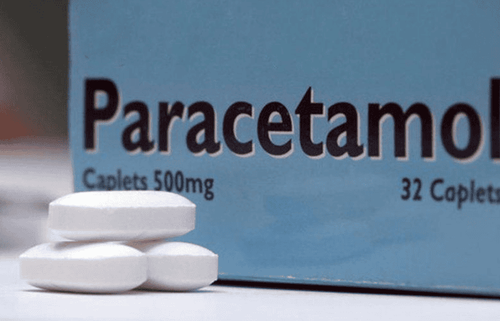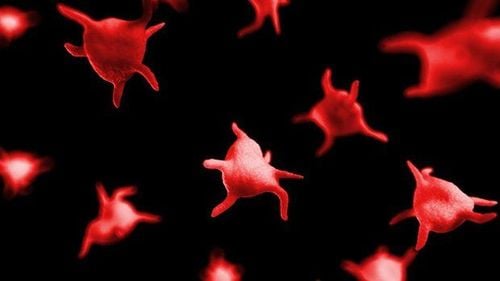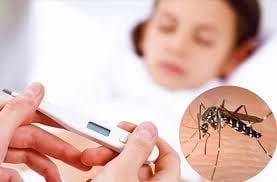This is an automatically translated article.
The article was professionally consulted by Specialist Doctor I Pham Thi Suu - Pediatrician - Vinmec Royal City International Clinic.Currently, the situation of dengue fever epidemic in some provinces and cities across the country is complicated. Many patients subjectively did not go to the doctor to self-treat at home, leading to severe disease progression. So how dangerous is dengue fever? When sick, how to treat?
1. What is Dengue fever?
Dengue fever is an acute infectious disease caused by the dengue virus. Dengue is transmitted by mosquitoes that transmit the dengue virus from an infected person to a healthy person. Dengue fever can sometimes cause very severe pain in the muscles and joints.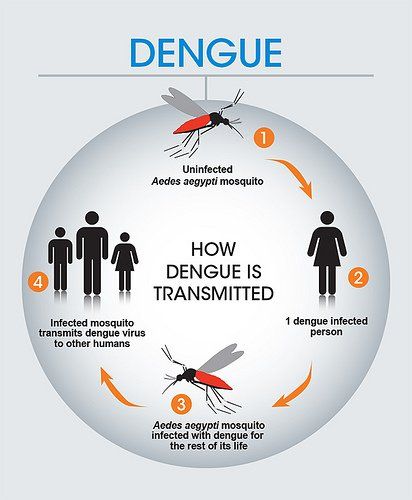
Virus truyền từ người bệnh sang người lành qua muỗi đốt
The disease occurs all year round, often increasing in the rainy season. The disease occurs in both children and adults. Mild dengue fever will cause high fever, rash, muscle and joint pain, blood clotting disorder, multi-organ failure... If not diagnosed early and treated promptly, it can easily lead to dengue fever. severe form, which can cause heavy bleeding, a sudden drop in blood pressure (shock), and death.
2. Dengue fever symptoms
2.1. Classical Dengue (mild) People who get sick for the first time get it because they don't yet have immunity to the disease. This is the form with typical symptoms and no complications. The disease usually begins with a fever and will last for 4-7 days after being transmitted by mosquitoes. In addition, there are symptoms such as:High fever, up to 40.5 degrees Celsius Severe headache Pain behind the eyes Joint and muscle pain Nausea and vomiting Rash.
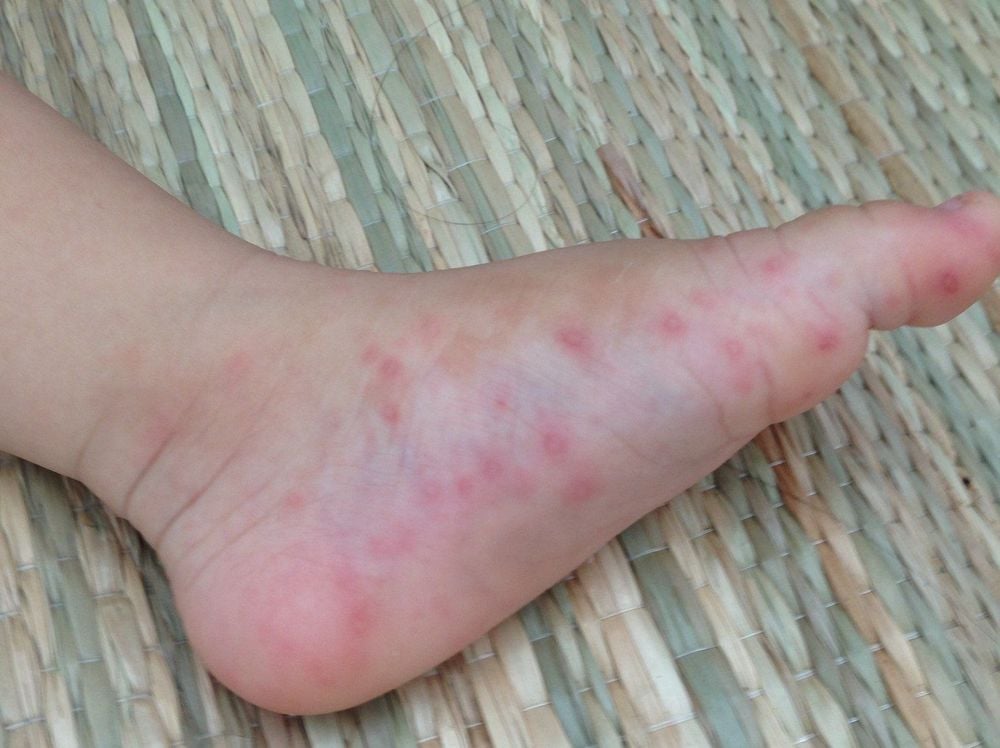
Triệu chứng của sốt xuất huyết
2.2. Dengue with bleeding Signs of this type of dengue include all the symptoms of mild dengue with blood vessel and lymphatic vessel damage, nosebleeds, bleeding in the gums or under the skin, cause bruising. This form of the disease can lead to death.
2.3. Symptoms of dengue hemorrhagic fever (dengue shock syndrome) This form is the most severe form of hemorrhagic fever – includes all manifestations of mild dengue plus bleeding, accompanied by plasma out of blood vessels, massive bleeding inside and outside the body, shock (low blood pressure).
This type usually occurs during a later infection, when you already have active (due to previous infection) or passive (passed on by your mother) immunity to a viral antigen. The disease usually manifests itself as severe after 2 to 5 days (the antipyretic phase). This form of the disease usually occurs in children (sometimes in adults). This form of the disease can be fatal, especially in children and adolescents.
2.4. Symptoms of dengue fever in children Children who have dengue fever from 3 days will have signs of high fever, making parents often mistake it for a cold or a respiratory infection.
3. How does dengue fever develop?
Dengue fever goes through three stages: the febrile phase, the critical phase, and the convalescent phase.3.1. Fever phase Patient has
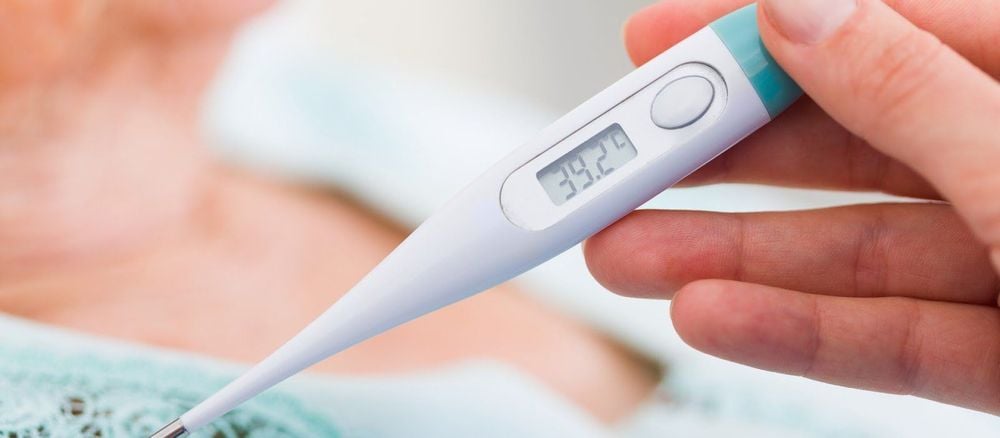
Sốt là biểu hiện sớm nhất của bệnh
Sudden high fever 39 - 40 degrees Celsius, continuous fever, taking antipyretic drugs but not reducing the temperature Headache, loss of appetite, nausea Congestive skin Muscle pain, joint pain, pain in both eyes. Usually there are petechiae under the skin, bleeding gums or nosebleeds Tests in this stage:
Dengue NS1 test (+) Hematocrit normal. Platelet count is normal or decreasing (but still above 100,000/mm3). The white blood cell count is usually reduced. 3.2. Critical phase: Usually by 3-7 days of illness, the patient may still have a fever or have decreased fever. May have the following manifestations:
Expression of plasma leakage due to increased vascular permeability (usually lasts 24 - 48 hours) Pleural effusion manifests as: Chest pain, feeling of heaviness in the chest, chest pain that increases when Change of position, difficulty breathing. Peritoneal effusion: Rapidly enlarged abdomen, abdominal distension, difficulty breathing. Enlarged liver: Pain in the right lower quadrant or epigastrium. If the plasma leakage is much, it will lead to shock due to reduced volume of circulation with manifestations of fatigue, restlessness or lethargy, cold extremities, cold and moist skin, small rapid pulse, stuck blood pressure, and little urine.
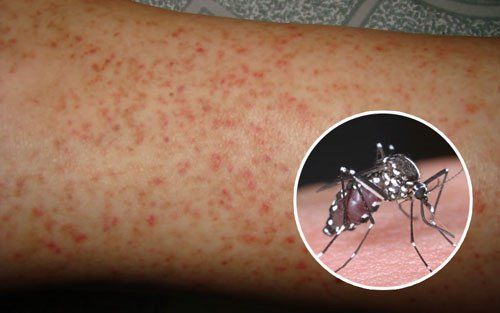
Xuất huyết dưới da (khi căng da không mất đi)
Hemorrhage:
Subcutaneous hemorrhage: Hemorrhagic spots or plaques are usually on the front of the legs and the insides of the arms, abdomen, thighs, ribs. Hemorrhage in the mucosa: Bleeding from the nose, gums, blood in the urine. Menstruation lasts or occurs earlier than the period. Internal bleeding such as gastrointestinal, lung, brain with manifestations of vomiting blood, blood in urine, hemoptysis, abnormal vaginal bleeding, menorrhagia.... In some severe cases, there may be manifestations. organ failure such as severe hepatitis, encephalitis, myocarditis. These severe manifestations may occur in some patients with no obvious signs of plasma leakage or without shock.
Tests:
Hematocrit increased manifestations of fluid drainage from the lumen, her blood. Platelet count falls below 100,000/mm3 (<100 G/L). Elevated liver enzymes In severe cases, there may be coagulation disorders. Ultrasound or X-ray can detect peritoneal and pleural effusion 3.3. Recovery phase After 24-48 hours of the critical phase, there is a gradual reabsorption of fluid from the interstitial tissue into the vessel lumen. This phase lasts 48 - 72 hours. The patient's fever is gone, his general condition is better, his appetite, hemodynamic stability is stable, and he urinates a lot. Test parameters gradually returned to normal.
4. How do I know if I am infected with Dengue virus?
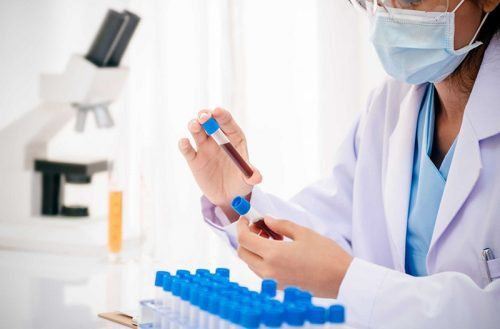
Xét nghiệm huyết thanh
Look for NS1 antigen in the first 5 days of the disease Look for IgM antibodies from day 5 onwards
5. Complications of Dengue fever
Dengue fever can cause serious complications, high mortality rate.Severe plasma leakage reduces circulating volume leading to dengue shock Severe hemorrhage Severe epistaxis (needs nasal septum), heavy menorrhagia, bleeding in muscles and soft tissues, gastrointestinal bleeding and viscera. Severe bleeding can lead to disseminated intravascular coagulation. Severe bleeding can also occur in patients taking drugs such as aspirin, ibuprofen to reduce fever or taking corticosteroids, a history of gastric and duodenal ulcers, chronic hepatitis. Severe organ failure Acute liver failure, liver enzymes AST, ALT ≥ 1000 U/L. Acute renal failure: Oliguria, anuria (no urine), urea, elevated creatinine. Consciousness disturbances (cerebral hemorrhagic fever). Myocarditis, heart failure.
6. Danger warning signs of dengue fever need to see a doctor immediately
Warning signs usually appear from the third day of illness, if any of the following signs are present, the patient should immediately go to medical facilities for active treatment:Struggling, lethargic, lethargy, cold skin, sweating, cyanosis

Trẻ sốt li bì từ ngày thứ ba cần đưa trẻ đến ngay cơ sở y tế gần nhất
Abdominal pain in the liver or pain in the liver: Abdominal pain in the right lower quadrant or epigastrium. Vomiting a lot Mucous membrane bleeding: nosebleeds, bloody urine, vomiting blood, abnormal vaginal bleeding, menorrhagia... Less urine Blood test: Hematocrit is elevated. Platelets decrease rapidly. If the patient has the above warning signs, they must be monitored at the hospital.
Dengue fever in patients with chronic diseases such as liver failure, body failure, hypertension, diabetes, pregnant women, children... should be closely monitored.
7. Things to pay attention to when treating dengue at home
The majority of Dengue hemorrhagic fever patients are treated as outpatients and monitored at primary health care facilities. Therefore, patients should pay attention to the following:Dengue fever has no specific treatment, mainly symptomatic treatment, patients need to follow the doctor's instructions, closely monitor themselves at home, Go to the hospital for tests by appointment. If the fever is high ≥ 39 degrees Celsius, take fever-reducing medicine, loosen clothes and cool off with warm water. The only antipyretic drug used is paracetamol, the dose is 10-15 mg/kg body weight/time (for example, a 50kg person can take 1 500mg paracetamol tablet/time), each time is taken 4-6 times apart. hour. The total dose of paracetamol should not exceed 60mg/kg body weight/24h (a person of 50kg should not take more than 3000mg/day) Absolutely do not use aspirin (acetyl salicylic acid), analgin, ibuprofen for treatment because it can cause bleeding and acidosis. Rehydrate by drinking oresol (mix according to instructions), orange juice, lemon juice...

Bệnh nhân bị sốt xuyết huyết nên nằm trong màn, phòng tránh muỗi đốt làm lây lan dịch bệnh
Sleep under a mosquito net to avoid being bitten by mosquitoes. If there are any warning signs (as mentioned above) need to go to the hospital immediately. Dengue fever is an infectious disease that spreads quickly, the disease can have dangerous complications, the patient should follow the treatment instructions of the doctor. The best way to prevent the disease is to actively kill mosquitoes, larva, larva and prevent mosquito bites.
Patients with suspected dengue infection can come for examination, testing and treatment with a team of doctors at Vinmec Royal City International Clinic. With an area of nearly 500 m2, Vinmec International Clinic is invested in modern, synchronous and international standards, ensuring on-site service for most of the essential medical examination and treatment needs for customers with quality. and best service.
Please dial HOTLINE for more information or register for an appointment HERE. Download MyVinmec app to make appointments faster and to manage your bookings easily.




